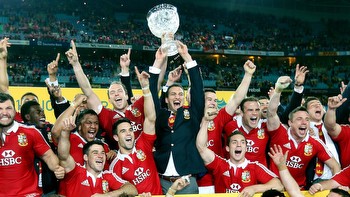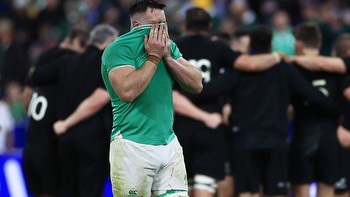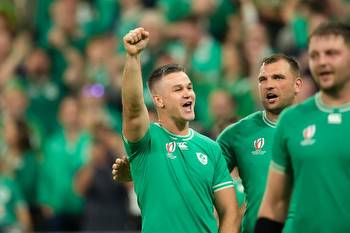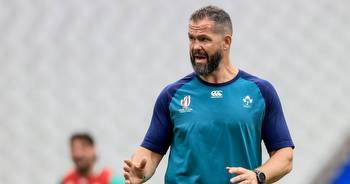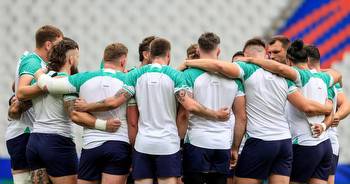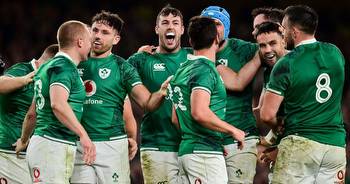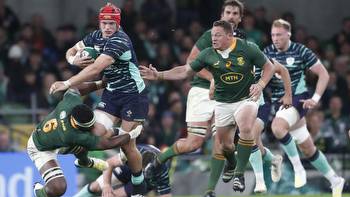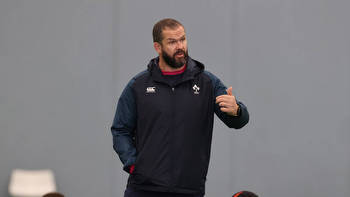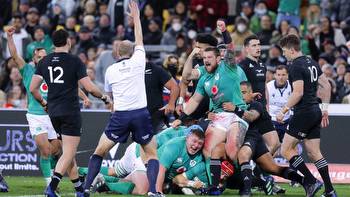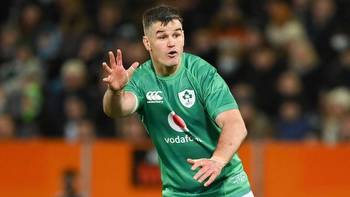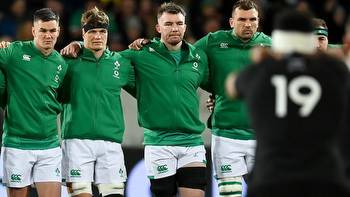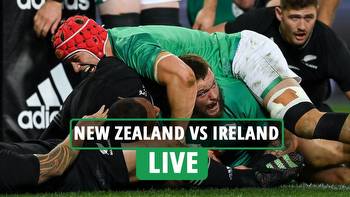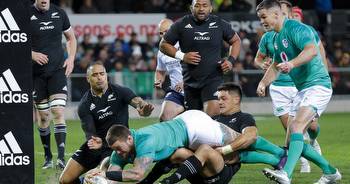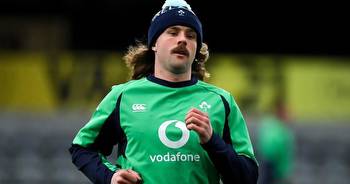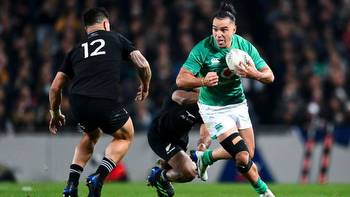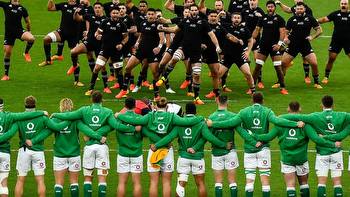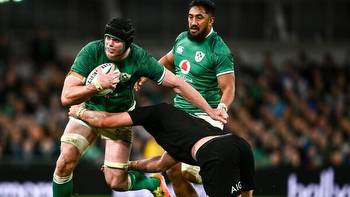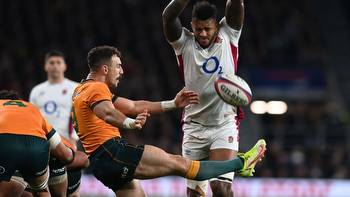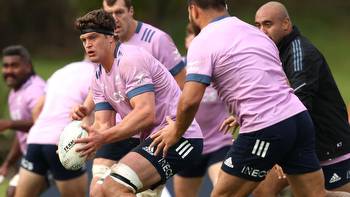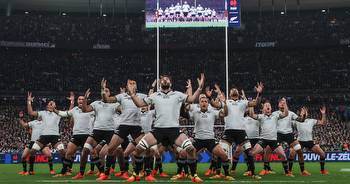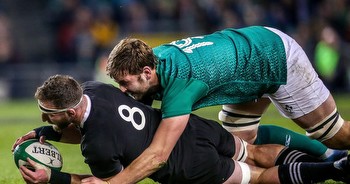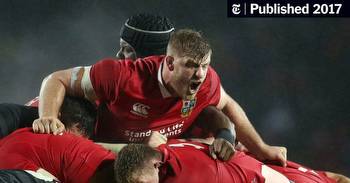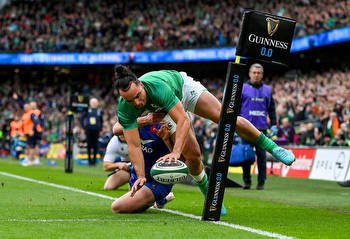Donal Lenihan: The greatest achievement by an Irish side since IRFU was founded 148 years ago
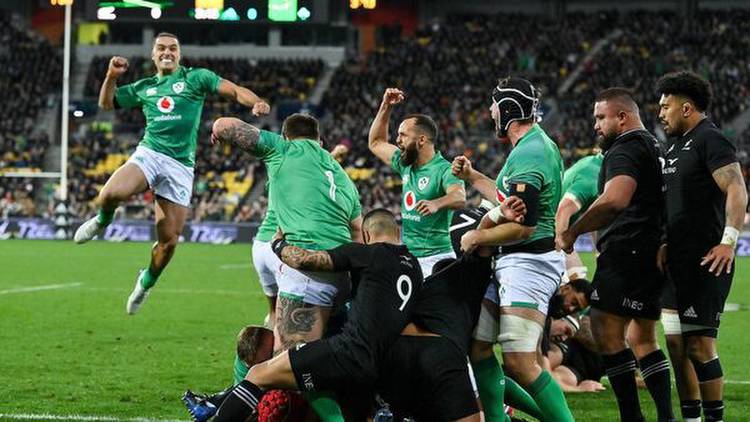
The enormity of the achievement may well not hit this heroic Irish rugby squad until well into their retirement. A united and happy bunch throughout this searching five-game tour to the most demanding rugby nation of all, they have gone where the chosen few have been before.
Quite what it means for Irish rugby, in the longer term, remains to be seen as this incredible series win elevates Ireland to the No 1-ranked side in the game. No sooner had Andy Farrell and Johnny Sexton caught their breath and settled in their seats for one of the cheeriest post-match press conferences ever attended by an Irish contingent, than the question arose: “Have Ireland, once again, peaked too soon before a World Cup."
Seriously?
Forget the World Cup. That will take care of itself. What Ireland achieved over the last three weeks will not only stand the test of time but has to be acknowledged and recognised for what it is, in my opinion, the greatest achievement of an Irish side since the foundation of the IRFU in 1874.
While Farrell was keen to savour the moment - the least he deserved - he was also willing to concede that this was a means to an end, not an end in itself. Farrell and his management team are entitled to reflect on a job extremely well done on this tour given the manner in which the squad was tested early on.
They shipped so many injuries in the opening game against the Maori All Blacks that James Hume’s tour was over before it really began while the front row resources were depleted to such a degree, it necessitated parachuting former Leinster and Ireland prop Michael Bent into the squad for both Maori games, despite not having played for months. It also exposed the first time tourists to the harsh reality of what it takes to succeed in this country.
To start a five game tour with two defeats, on the back end of a long season, would test the resilience of any group of players. When the Maoris ran Ireland ragged in the Hamilton opener, suggesting the gulf in depth between the two countries would prove difficult to handle, you were left wondering if they could adapt in time to be competitive.
While the clear destination that Farrell is aiming for is the Stade de France and the semi-final and final of next year's World Cup, the enormity of the most amazing eight day period in Irish touring history cannot be lost, as Ireland followed up on a first win over the Maoris at the fourth time as asking with a back-to-back win over New Zealand, who hadn’t lost two in a row at home since 1998 - to clinch an historic series win. This is seismic.
This tour has put Ireland on a different plateau and served to remind us all of just how far we have travelled in the six years since first beating the All Blacks in Chicago. There was a time in New Zealand when a test against Ireland would barely register with the locals. Tickets were plentiful, the sold out sign never in demand.
All that has changed. The interest in Saturday’s deciding test at the Cake Tin was such that a late surge in demand forced the NZRU to add additional seating for the first time since the 2017 Lions tour.
Suffice to say, Ireland have finally arrived in the consciousness of the New Zealand rugby public. No more are these games promoted by tacky promotions with Irish players depicted as cartoon characters in some form of an Irish dancing routine.
The only thing that's important from this rugby-mad country is respect. Farrell’s men have not only achieved that but dominated proceedings to such a degree in the first half on Saturday, playing a brand of attacking rugby normally the exclusive preserve of their hosts, that it was impossible for the most one-eyed Kiwis not to sit bolt upright and take notice of what was unfolding before their eyes. At times New Zealand looked rudderless in the face of the Irish onslaught.
What differentiates this Irish squad from predecessors is the hunger to achieve more. At the end of a long season with significant milestones already in the bag, could they go to the well for once more with the odds stacking against them.
The fact that New Zealand coach Ian Foster was able to name his strongest combination for this decider, with Sam Whitelock, David Havili and Will Jordan fully recovered, put his charges in position to right the wrongs of Dunedin. History has taught us that New Zealand are at their most dangerous in the immediate aftermath of defeat.
Everyone was braced for a contest of brutal physicality, that Sam Cane’s men would explode out of the blocks and carry the fight to the visitors from the outset. Yet, for whatever reason, New Zealand just couldn’t bring it. For the third test on the trot, Ireland opened with a try within minutes of the kick off.
The fact that it was registered courtesy of a clinical line out maul that saw the famed All Black front five repelled at a rate of knots, with the dynamic Josh van der Flier touching down without a black jersey within touching distance said so much about the technical excellence Paul O'Connell has brought to Ireland’s maul. It also served to settle Ireland down and reinforce the strong belief within the side that they were capable of winning again.
What followed was quite extraordinary, the most dominant and complete opening half of rugby I’ve ever witnessed from an Irish team against such top class opposition.
Every time Ireland had a set piece in the New Zealand twenty two, you felt they were capable of scoring. The most pleasing aspect of this tour, and something Farrell referred to in that post-match debrief, was the growth within the group week on week.
The opening test defeat was made all the more painful by the fact Ireland were creating multiple chances but appeared incapable of finishing them off. To win the series, and to progress to the last four at a World Cup, that strike rate has to change. Not in his wildest dreams could Farrell have anticipated the improvements on that front in the space of a week.
This time out, with a full complement on board, Ireland embarrassed New Zealand with the creativity and accuracy of their attack. On the five occasions they secured a foothold in the New Zealand twenty two, Ireland registered three tries and 22 points, an average return of 4.5 points per visit. In Dunedin, Seven visits to twenty two had yielded a measly ten points, an average of 1.4 per entry
For a team that struggled to expose New Zealand’s defensive frailties in Dunedin, the way Sexton orchestrated a pair of scintillating tries for Hugo Keenan and Robbie Henshaw, that left the hosts mesmerised and chasing shadows, was a thing of beauty.
For Ireland to have a 19-point cushion at the break was the stuff of fantasy. The return to arms of Whitelock suggested New Zealand’s line out would be back to its best but, with Ireland pilfering three of their ten throws in the opening half alone, the cracks were beginning to appear.
What has been incredibly satisfying about this trek is that Ireland have shown incremental improvements in every outing. Far from being demoralised by those opening defeats, they absorbed the lessons, never allowed the heads to drop and came back stronger every time.
That mental fortitude is something that has been growing within the group and will be needed for Ireland to scale even bigger heights. Of course, it's far from ideal that the team is still reliant on Sexton to orchestrate an ever evolving attacking strategy but at least Joey Carbery and Ciaran Frawley were also exposed to the white heat of battle on the tour and contributed handsomely. Both need to kick on even more in provincial colours next season.
Elsewhere heroes emerged all round, not least in the punishing shift put in by Peter O'Mahony, Ireland’s spiritual leader up front. Around him Van der Flier, Caelan Doris and Dan Sheehan were incredible while James Ryan choose the second and third test to remind us what all the fuss was about when he first emerged on the scene.
Alongside him in the second row, Tadhg Beirne put in two breathtaking performances in the same games. The way he helped stem the inevitable All Black response in the final quarter, when they got within three points of Ireland, with three stunning turnovers at crucial times was inspirational.
What we experienced down under over the last three weeks was true rugby theatre. Ireland must now use that experience to rise to even higher levels. It’s been riveting.
A final thought: If World Rugby, no doubt under increasing pressure from the venture capitalists, one wonders will we ever see a three test series taking place again with the new Nations League format that’s being proposed.
Given what we’ve witnessed across the rugby globe this month that would be a travesty.

